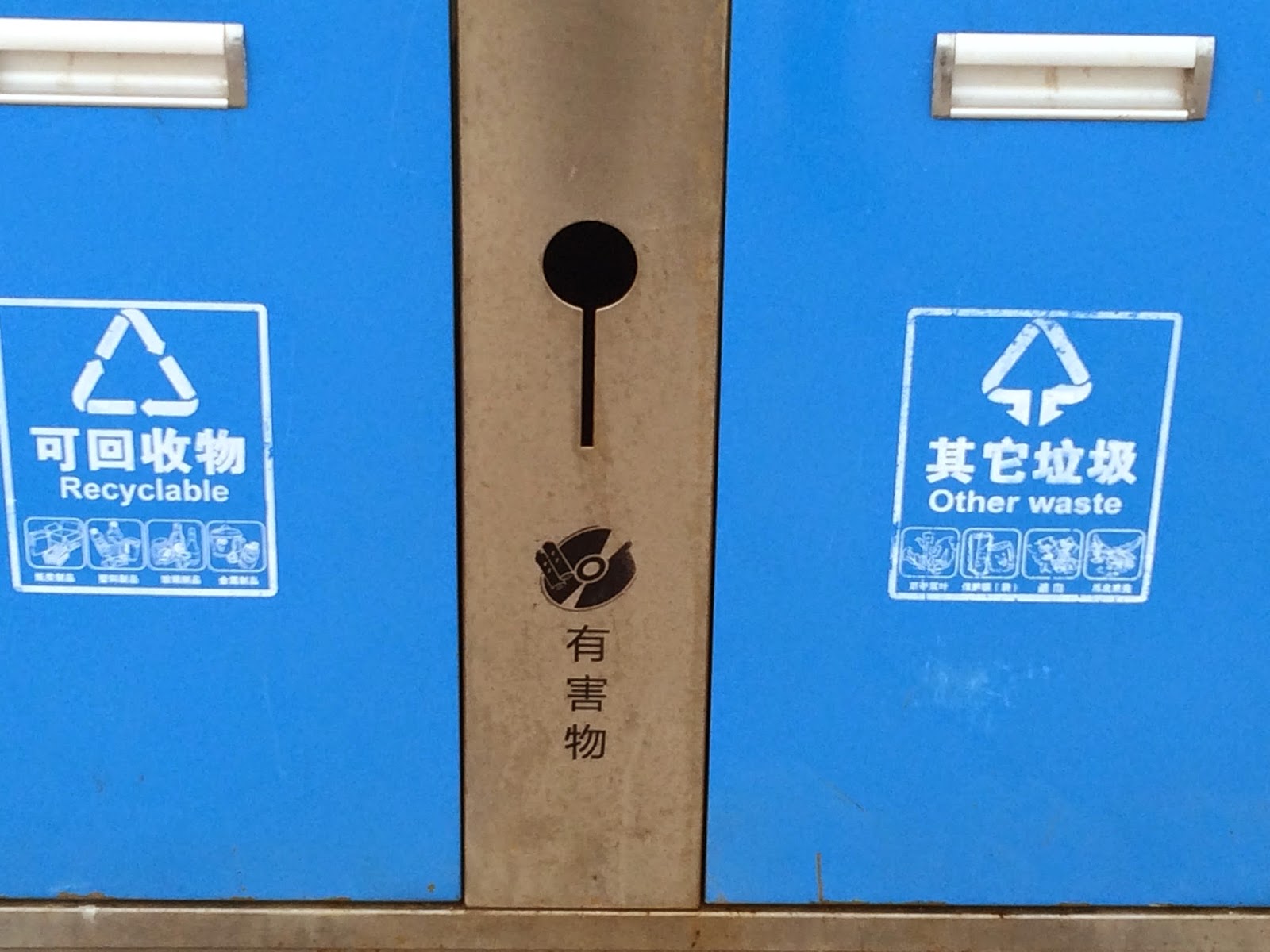Return to China: Day III: China Surf City?!
 |
| The view from my hotel room in Qingdao |
I snap to attention in the muted grey darkness of a sharp Beijing Spring morning. Barbed wire fence punctuates my window view into the military courtyard next door. I pack, shower, dress, and linger in the 6 AM lobby until the breakfast buffet opens. I listen intently to any Chinese I can pick up from the guests, the concierge, the bellmen. My brain is working triple time to convert back into Chinese code again. I devour a tasty Chinese breakfast of boiled greens, warm soy milk, bean curd, and buns.
 |
| Coastal Walk in Qingdao |
Groggily and hurriedly I check into my flight with Shandong Airlines; I enter a special line because I am a white American guy with a big nose who speaks mediocre Chinese. Luckily that means I don’t have to wait at all.
Customs is efficient, though I am stopped. The officials want to know what is in my sealed box (school publicity materials). I don’t really have a good answer, as I’m only here on a tourist visa, but after exchanging smiles and pleasantries, the ladies wave me through.
I drift through the gleaming, spacious, modern terminal to my plane, where I am one of two foreigners in the waiting area. The flight is smooth, and I sleep most of the way, rousing myself briefly to attempt to see the Forbidden City from the sky, but failing because the smog is as thick as a blanket, and because my window faces the wrong way.
We bank into Qingdao, a pulsating metropolis of six million. Though it has been inhabited for some 4,000 years, it is especially known by Westerners for being firmly within the German sphere of influence when China was sliced up by Western powers in the 1800’s. The benefits to the city were myriad, including Bavarian architecture, the Tsingtao brewery, and an international disposition to the world. The natural setting is spectacular, as the city straddles a jagged peninsula with six sandy beaches and variegated points and reefs, and is backed by majestic hills and mountains. Being modern China, its north, west, and southern sectors are dominated by shipping, industry, and factories, so it's no Waikiki, but for the northern Chinese it’s a coveted tourist city, the perfect place to vacation, eat, sunbathe, and stroll.
At the airport I wield my Chinese to arrange a 45 minute taxi to the city center for US $25. I could have gotten it for US $20, but my early negotiating skills are a bit rusty. I ogle through the window as China unfolds itself: high rises, oil refineries, power plants, cranes, construction sites, highways, and the inexorable presence of human development never ceases to overwhelm.
I arrive at the Crowne Plaza Qingdao in the new sector of the city. Just like in emerging cities across the planet, from Johannesburg to Detroit, the ultramodern Central Business District pulls in business travelers miles away from the historic center. I slink into my frankly luxurious hotel, which is connected to Bentley and Lamborghini dealerships. Education is big business in China, white foreigners are honored guests, and today I am the beneficiary of this.
The marble and glass lobby is stunning, with the centerpiece being a gold-enameled piano that’s over a hundred years old. A bakery, an African safari bar, a luxuriant open floor cafe/restaurant, and 40 floors of rooms, peppered with restaurants, clubs, and viewing decks, create a sanctuary from the polluted streets outside.
I ascend to the 29th floor to discover the kind of hotel room that makes American business travelers salivate and trade stories about working in China. Imagine something, and it’s probably in here.
Also, today Qingdao wins the contest; it is the most polluted city in China! The American Embassy publishes air quality measurements at cities across China, and today, when Beijing hovers around 56, Qingdao has pushed beyond 300! I can hardly see across the street, and the thick industrial dust stifles. Poor China. . .
After five airports, four flights, three taxis, two hotels, and one long trip, I’m knackered. I unpack, settle, catch up on e-mail and messages, and drink lots of bottled water (sadly, in China there is no alternative).
In the mid afternoon it’s time to pound the pavement. Though I can’t see more than a few blocks, I know the ocean is near. I descend to the street and walk East to the Pacific Ocean. Ten minutes of urban wandering deliver me to the Olympic Village. When Beijing hosted the Summer Olympics in 2008, Qingdao served as the venue for sailing races. An entire piece of the waterfront was transformed with Olympic rings, promenades, plazas, museums, amphitheaters, restaurants, and the “Passion Love Bar.” I wander. The hazy fog covers the soaring skyline and sits still; it’s windless. The sea is beautiful, as always. Tiny wavelets push up on the concrete pilings stacked to create the protected inlet. I carouse north on a coastal walking trail, peering into a surprisingly translucent sea to see rocks, reef, and underwater caverns. This could be a stunning coastline to dive, swim, and surf, though water quality is surely suspect.
 |
| Qingdao hosted the sailing events at the Beijing Olympics. |
At 7 PM I rendezvous in the lobby with Emma Hansson, Tomas, and Stella. Emma is the country manager for Educatius, the global student recruitment agency that represents my school. Tomas is a client manager with Educatius. Stella works for a company that funnels international students into American schools, while also renting and administrating off campus dorm programs. They are like a third party boarding program that can plug into day schools. It’s an interesting and emerging model that is just now on the rise.
 |
| The Chinese can do it. Let's go America! |




Comments
Post a Comment